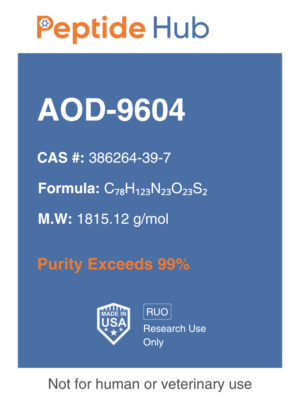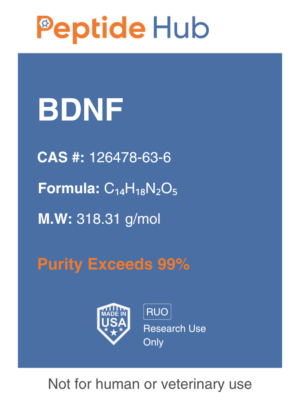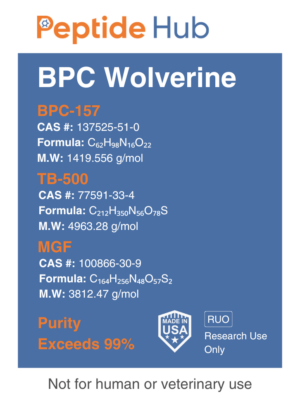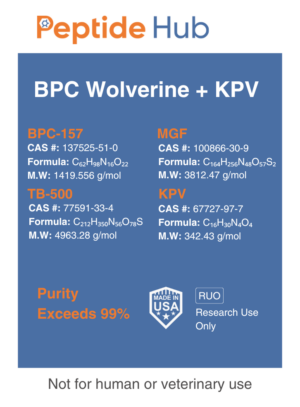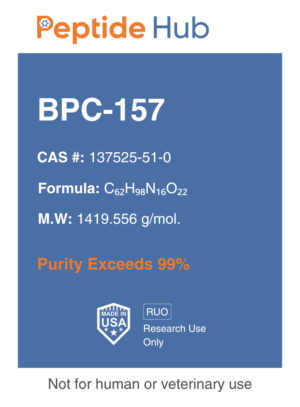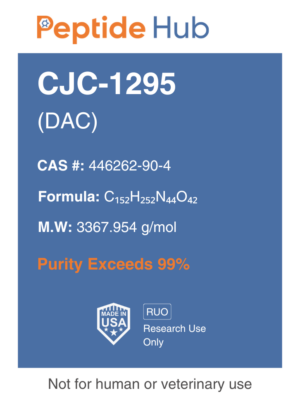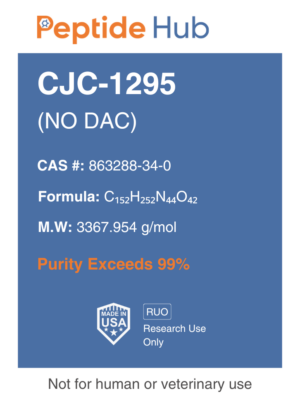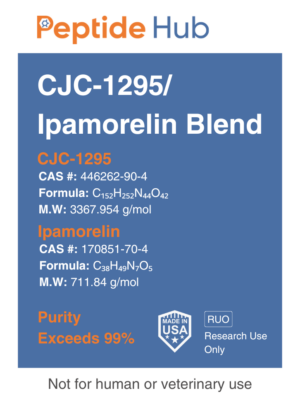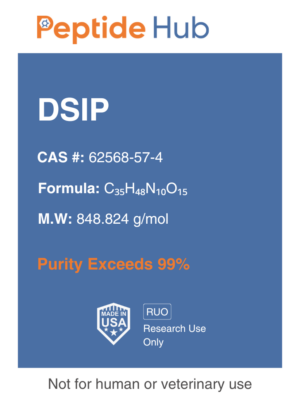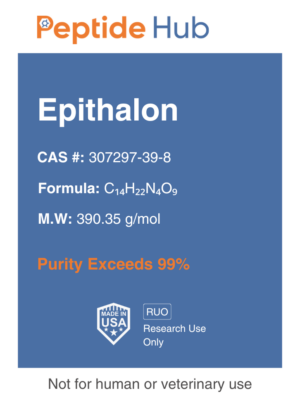P21
$50.00

P21 – 10mg
P21 is a cyclin-dependent kinase inhibitor, a peptide that plays a crucial role in regulating the cell cycle and promoting cellular senescence. Known for its ability to inhibit cell division, p21 is essential in maintaining cellular homeostasis and responding to DNA damage. This peptide has garnered interest for its potential applications in research, where it may help suppress tumor growth.
Buy P21, as it is being explored for its role in aging and regenerative medicine, as it may influence stem cell behavior and tissue regeneration.
Research Peptides
99% Purity
3rd Party Tested
USA Made
Note: Peptides will arrive in a lyophilized (powder) form for maximum stability
The peptides are available for research and laboratory purposes only. Please review and ahere to our Terms and Conditions before ordering.
- Description
- Certificate of Analysis
P21 Structure
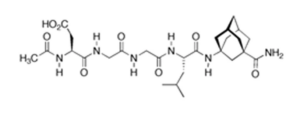
Source: Nature
What is P21?
P21 is a cyclin-dependent kinase inhibitor that plays a crucial role in regulating the cell cycle and cellular responses to stress. It is a protein encoded by the CDKN1A gene and is involved in controlling cell proliferation, apoptosis, and DNA repair mechanisms.
Introduction to P21
P21 was first identified in the early 1990s as a downstream effector of the tumor suppressor protein p53. Its discovery marked a significant advancement in understanding how cells regulate growth and respond to DNA damage. Since then, P21 has been extensively studied for its role in cancer biology and its potential applications.
Unique Composition
P21 is a polypeptide consisting of 164 amino acids. It interacts with various cyclin-dependent kinases (CDKs) to inhibit their activity, thereby regulating the cell cycle and preventing uncontrolled cell division. This inhibition is critical for maintaining cellular integrity and preventing tumorigenesis.
Mechanism of Action
P21 functions primarily as a CDK inhibitor, blocking the activity of CDK2 and CDK4. By doing so, it prevents the phosphorylation of retinoblastoma (Rb) protein, leading to cell cycle arrest in the G1 phase. This mechanism is vital for allowing cells to repair DNA damage and maintain genomic stability.
Role in Cellular Stress Responses
P21 is also involved in cellular responses to various stressors, including oxidative stress and DNA damage. When activated, P21 helps to promote cell survival by inducing cell cycle arrest and facilitating DNA repair processes, ultimately contributing to cellular homeostasis.
Tumor Suppression
One of the most significant benefits of P21 is its role in tumor suppression. By inhibiting cell cycle progression, P21 helps prevent the proliferation of damaged or potentially cancerous cells. This makes it a key player in research, particularly in developing therapies that enhance p21 expression or mimic its function.
Tissue Regeneration
Research has indicated that P21 may play a role in tissue regeneration by regulating the balance between cell proliferation and differentiation. Enhanced P21 activity may promote the healing process following injury, making it a potential target for research applications.
Cellular Aging and Senescence
P21 is also implicated in cellular aging and senescence. Its expression can increase in response to aging-related stress, contributing to the aging process. Understanding how P21 regulates senescence may provide insights into age-related diseases and potential interventions.
Why P21 is Different from Other Peptides
P21 stands out from other peptides due to its specific function as a cyclin-dependent kinase inhibitor. While many peptides focus on growth promotion or metabolic enhancement, P21 directly influences cell cycle regulation and stress response pathways, making it a unique target in cancer research and regenerative medicine.
For Research Use Only
No Certificate of Analysis images available for this product.


